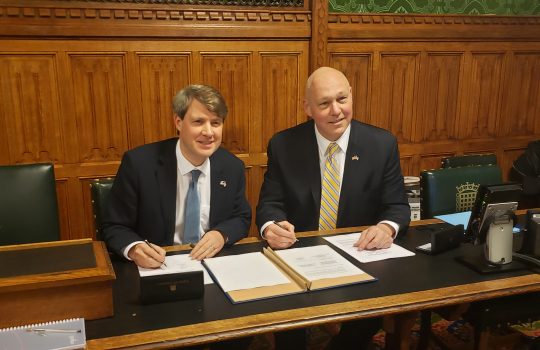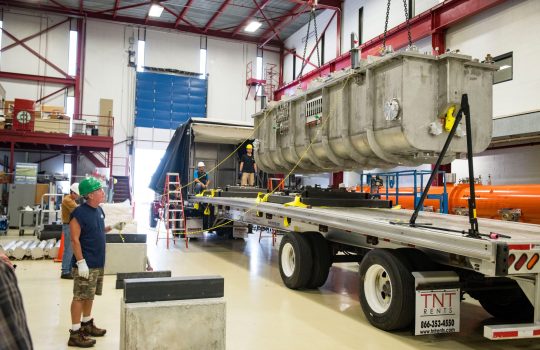UK invests £65 million in international science projects hosted by Fermilab
- Deep Underground Neutrino Experiment
- DUNE
- LBNF
- Long-Baseline Neutrino Facility
- neutrino
- PIP-II
- STFC
- United Kingdom
From Cambridge Network, Feb. 3, 2020: Representatives from UK Research and Innovation and the US Department of Energy have signed an agreement that outlines £65 million worth of contributions that UK research institutions and scientists will make to the international Deep Underground Neutrino Experiment and related projects hosted by Fermilab. DUNE will study the properties of mysterious particles called neutrinos, which could help explain more about how the universe works and why matter exists at all.


